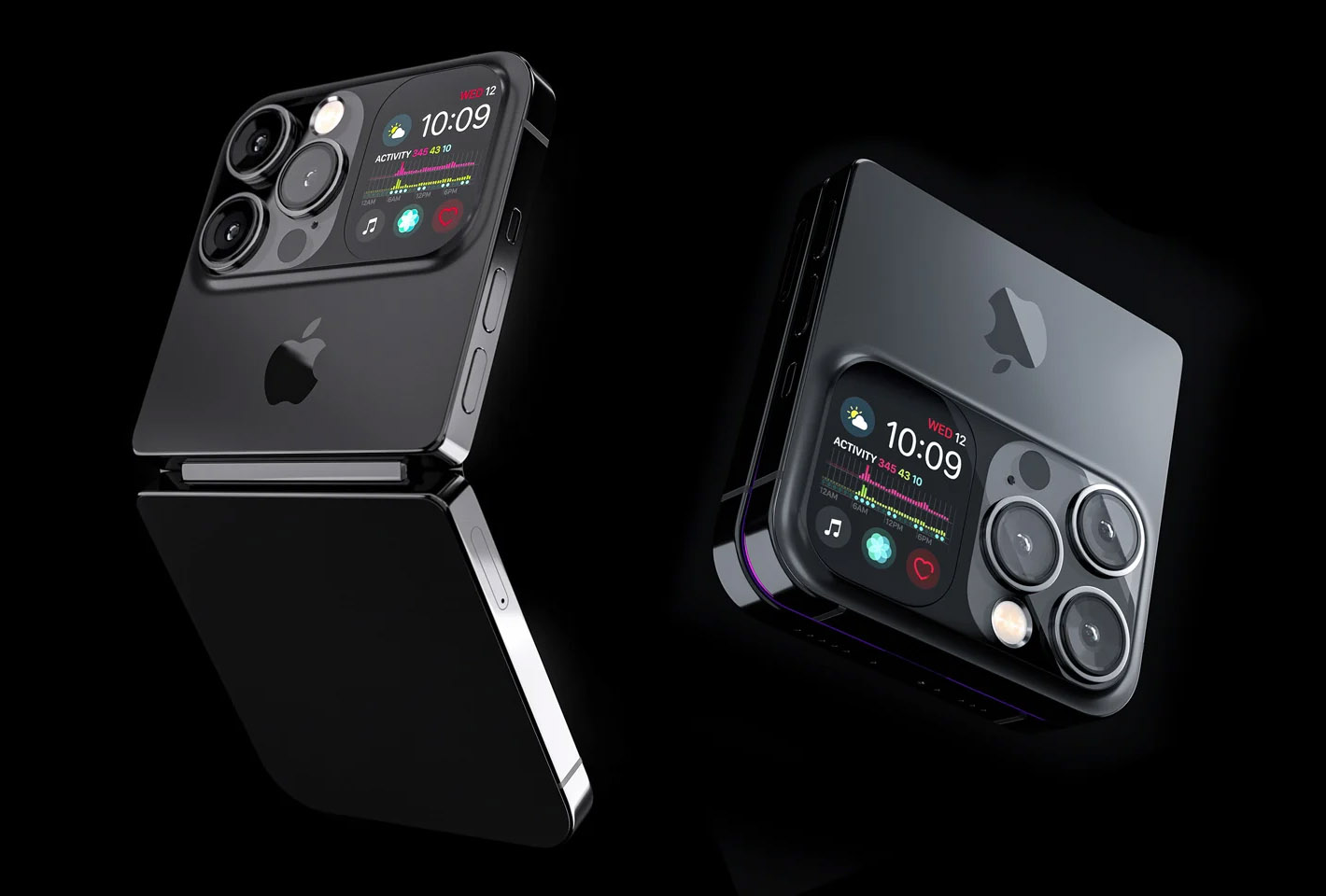Hands-On: Lenovo Yoga Book 9i (2025) Redefines Dual-Screen Computing with Refined Design and Functionality
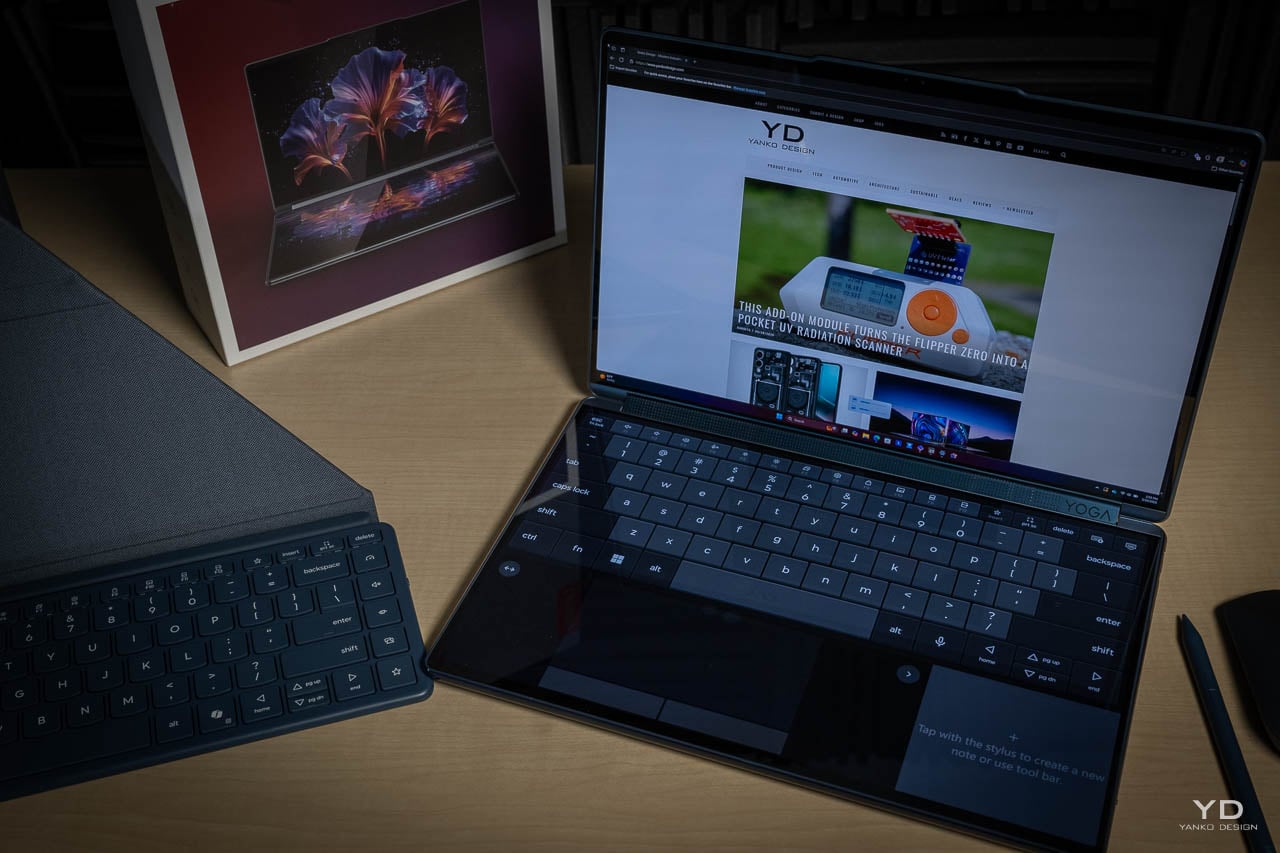
Table of Contents

After spending weeks reviewing countless laptops during this year’s computing season, it feels refreshing to finally get my hands on Lenovo’s dual-screen Yoga Book 9i announced earlier this year. This isn’t just another laptop with marginally improved specs. It represents a fundamentally different approach to mobile computing that challenges conventional design wisdom.
Designer: Lenovo
The Yoga Book 9i pushes boundaries in the laptop space. Where most manufacturers experiment with novel form factors as one-off concept devices, Lenovo has refined and iterated on the dual-screen concept, delivering a third-generation product that addresses real productivity needs while maintaining a premium aesthetic.
Design Evolution: Thoughtful Refinement Over Revolution
The 2025 Yoga Book 9i maintains the same fundamental dual-screen design philosophy as its predecessor but introduces subtle refinements that enhance the overall experience. The all-aluminum unibody construction features an elegant Tidal Teal colorway that replaces the previous blue finish. The chassis maintains the same dimensions at 299.1 x 203.9 x 15.95mm and identical 1.34kg (2.95 lbs) weight, preserving its ultraportable credentials.
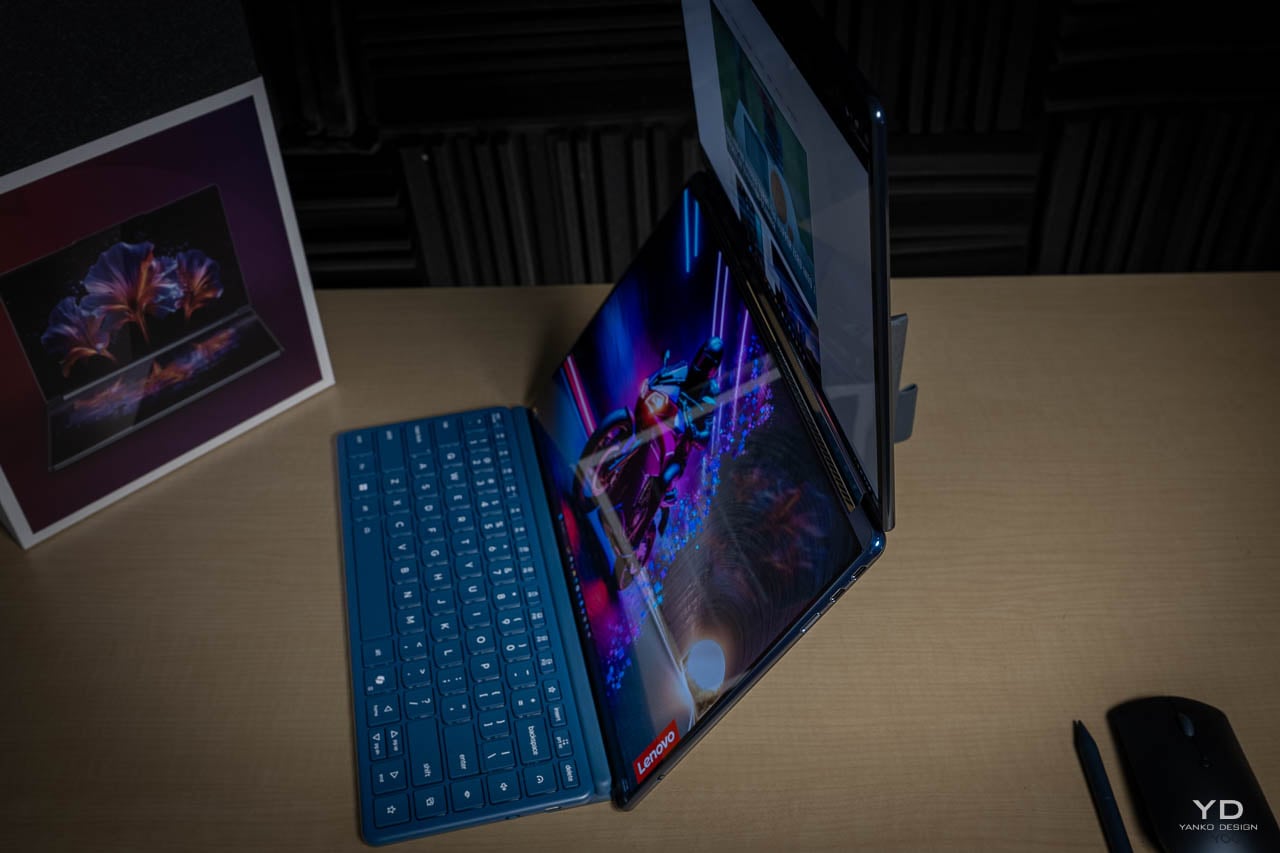

What immediately stands out are the rounded, polished edges, a design choice that serves both aesthetic and functional purposes. These refined contours eliminate sharp edges, improving grip comfort particularly when using the device in tablet configurations. This jewelry-like finish elevates the premium feel while making the device more ergonomic during extended use.
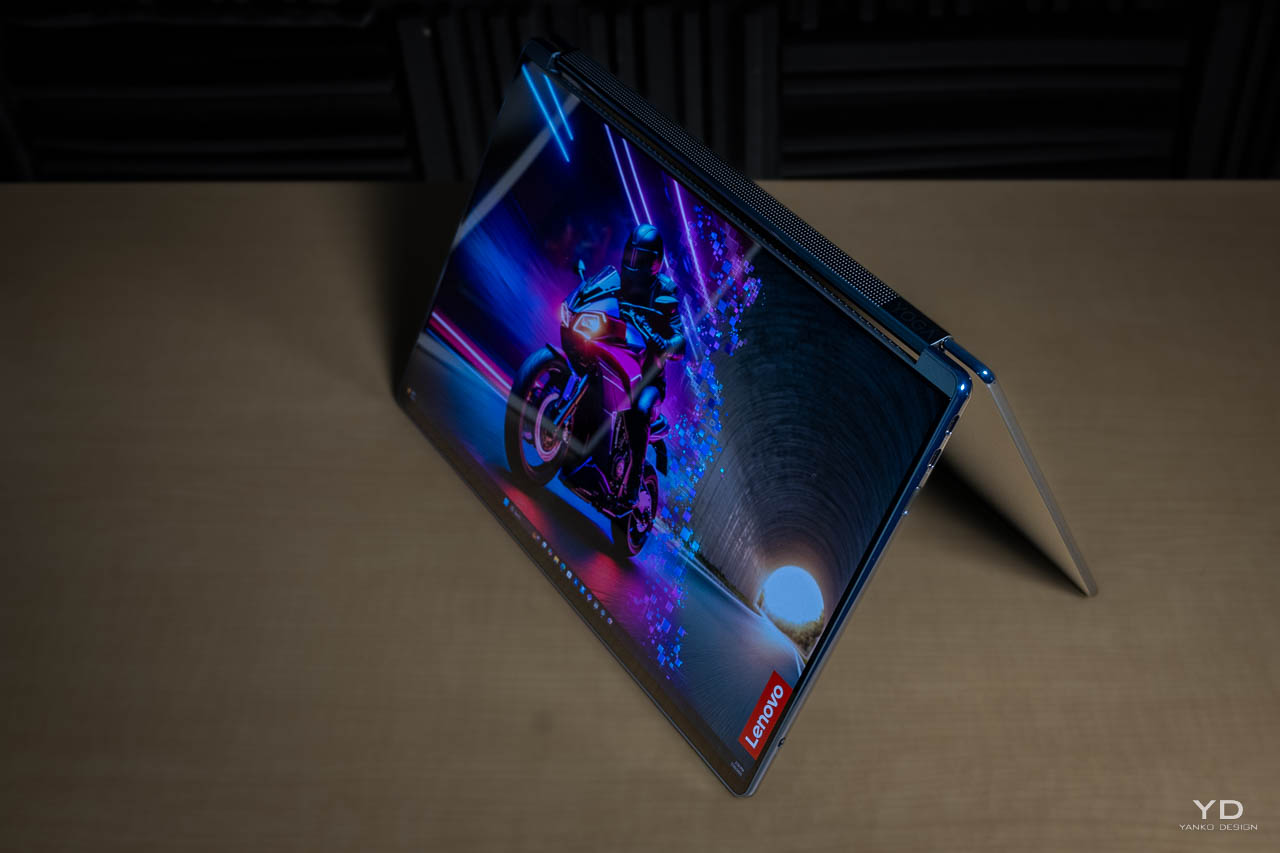

The rotating soundbar integrated into the hinge remains a standout design element, housing two 2-watt tweeters that complement the two 2-watt woofers positioned at the bottom corners. This arrangement ensures consistent audio quality regardless of the device’s orientation. It offers a thoughtful solution to a problem most convertibles ignore.
Display Excellence: Dual POLED Perfection
The dual 14-inch POLED displays remain the centerpiece of the Yoga Book 9i experience. Each panel offers a 16:10 aspect ratio with 2.8K (2880 x 1800) resolution, 400 nits of brightness, and 100% DCI-P3 color coverage. The POLED technology delivers deep blacks, vibrant colors, and excellent contrast that make content creation and consumption equally satisfying.
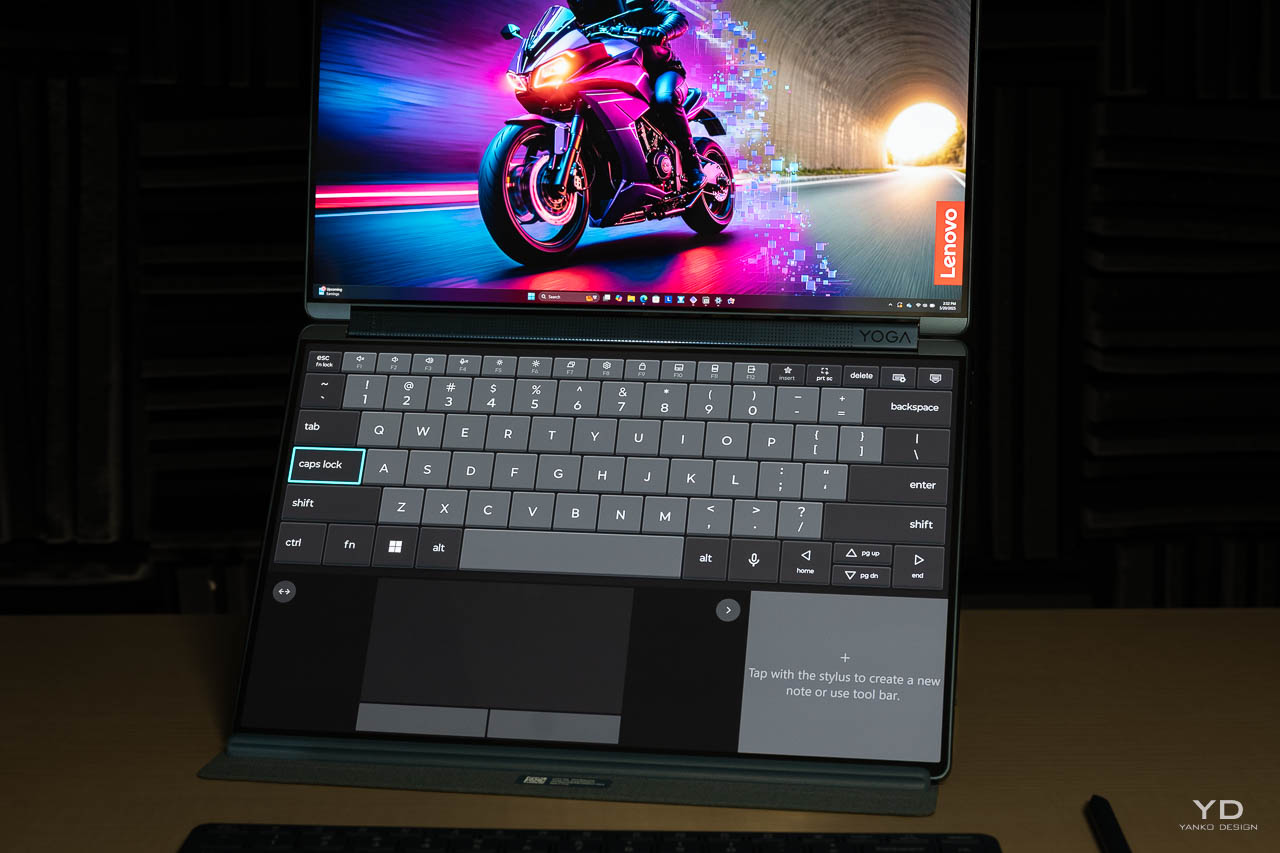

What’s particularly impressive is how these displays maintain consistent quality across various usage modes. Whether in dual landscape, dual portrait, or waterfall configurations, the visual experience remains cohesive. The anti-fingerprint coating on the glossy panels helps maintain their pristine appearance despite frequent touch interactions.
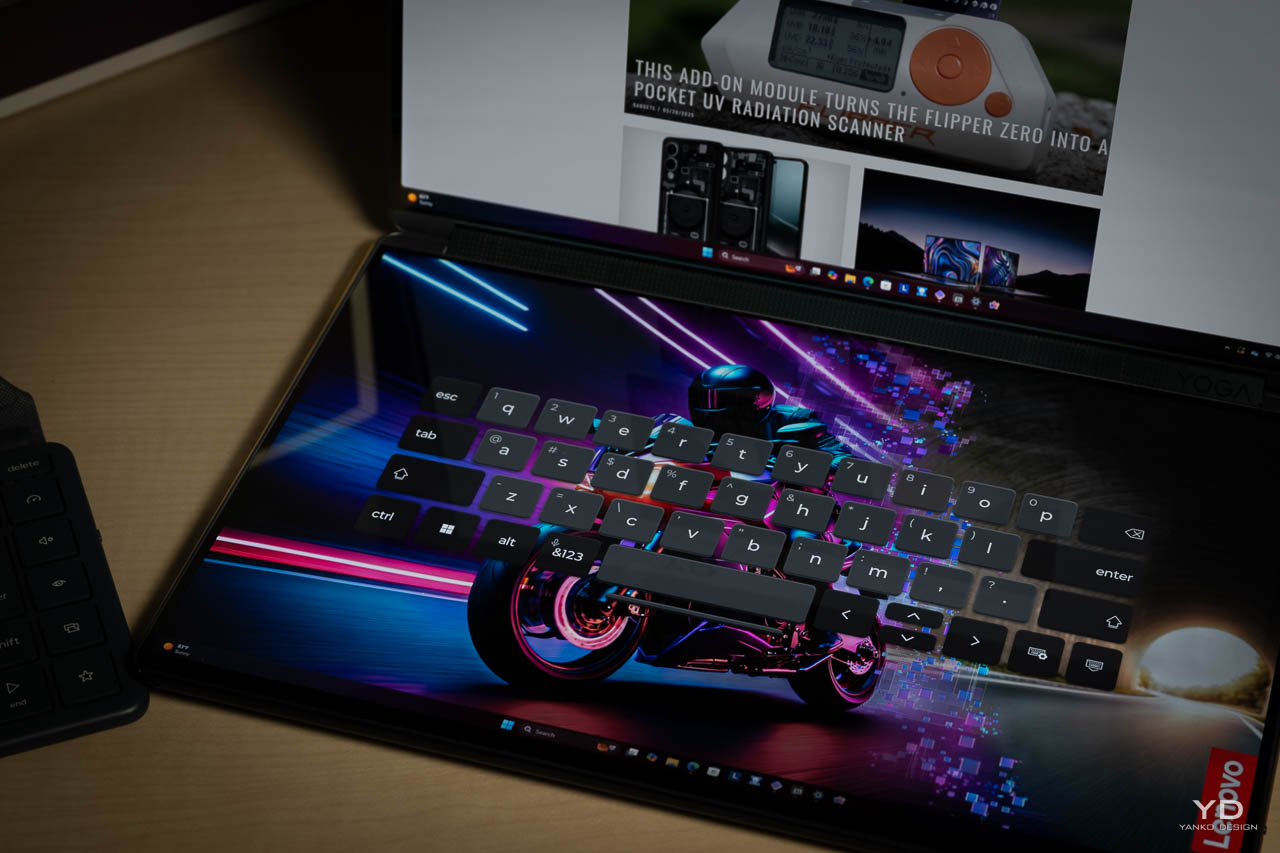

Usability: Where Hardware Meets Software Innovation
The true test of any experimental form factor is how it translates to real-world usability, and this is where the Yoga Book 9i truly shines. The included accessories (folio stand, Bluetooth keyboard, active pen, and mouse) transform what could be a novelty into a genuinely productive system.
The folio stand deserves particular attention for its ingenious design. It securely holds the device in various orientations while doubling as storage for the keyboard when not in use. The magnetic attachment system feels robust and reliable, inspiring confidence even when positioning the expensive device in portrait orientation.
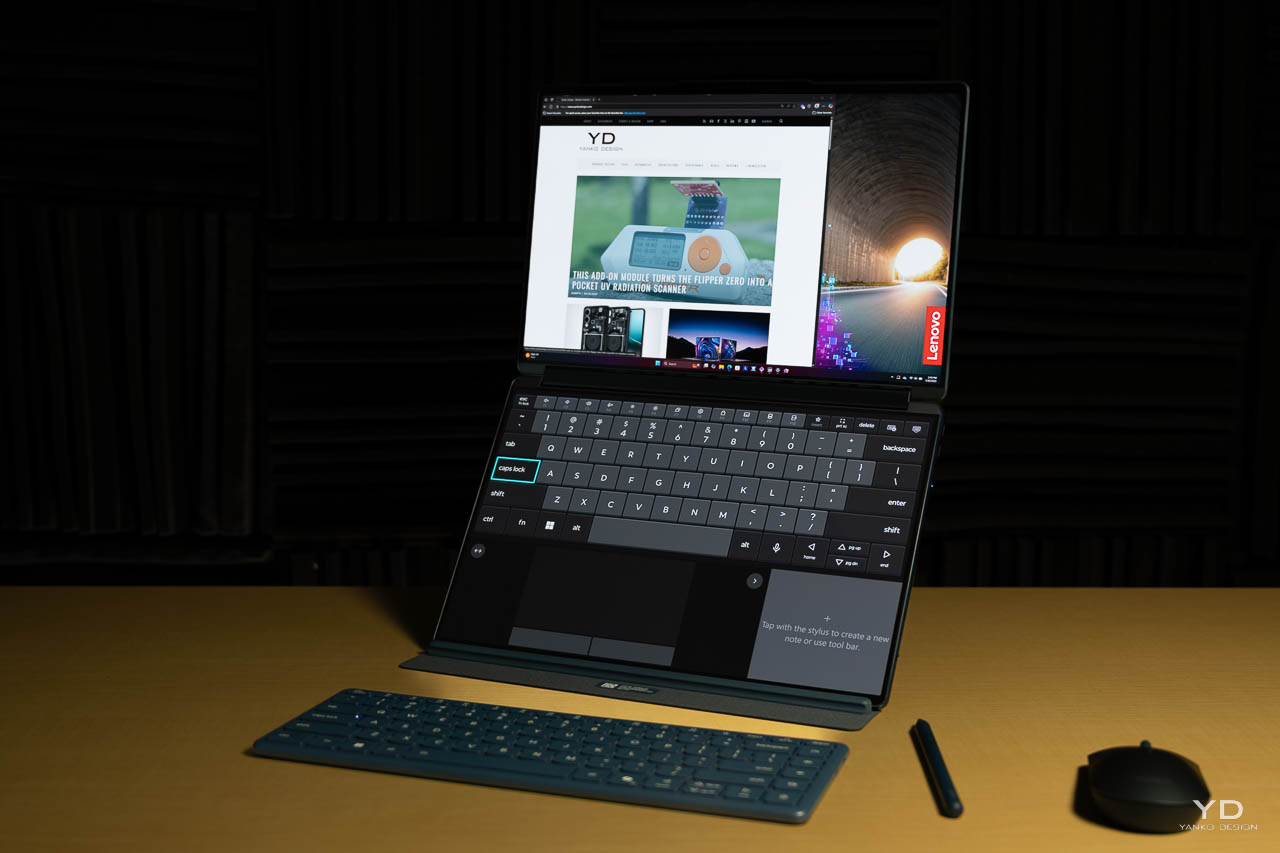

The Bluetooth keyboard offers a surprisingly satisfying typing experience with 1.5mm key travel and what Lenovo calls “soft-landing” switches. The keys provide tactile feedback without excessive noise, making extended typing sessions comfortable. The keyboard magnetically attaches to either the bottom screen or the folio stand, offering flexibility based on your working environment.
New to this generation are the Quick Keys positioned on the keyboard’s right side, providing one-touch access to frequently used functions. These include power profile switching, audio profile selection, eye care mode, Smart Connect for Android device integration, and a customizable favorite app launcher. These thoughtful additions streamline workflow in ways that traditional function keys cannot.
The Lenovo User Center software has been refined to better support the dual-screen experience. Independent brightness control for each display, intuitive window management gestures, and customizable widgets enhance productivity without overwhelming users with complexity. The five-finger tap gesture to expand content across both screens feels natural and becomes second nature after minimal use.
Performance: Balanced Power for Productivity
The 2025 Yoga Book 9i introduces Intel’s Core Ultra 7 255H processor, replacing the 2024 model’s Core Ultra 7 155U. This represents a significant architecture shift with 12 cores (2 Performance + 10 Efficient) compared to the previous 10 cores (2P + 8E).
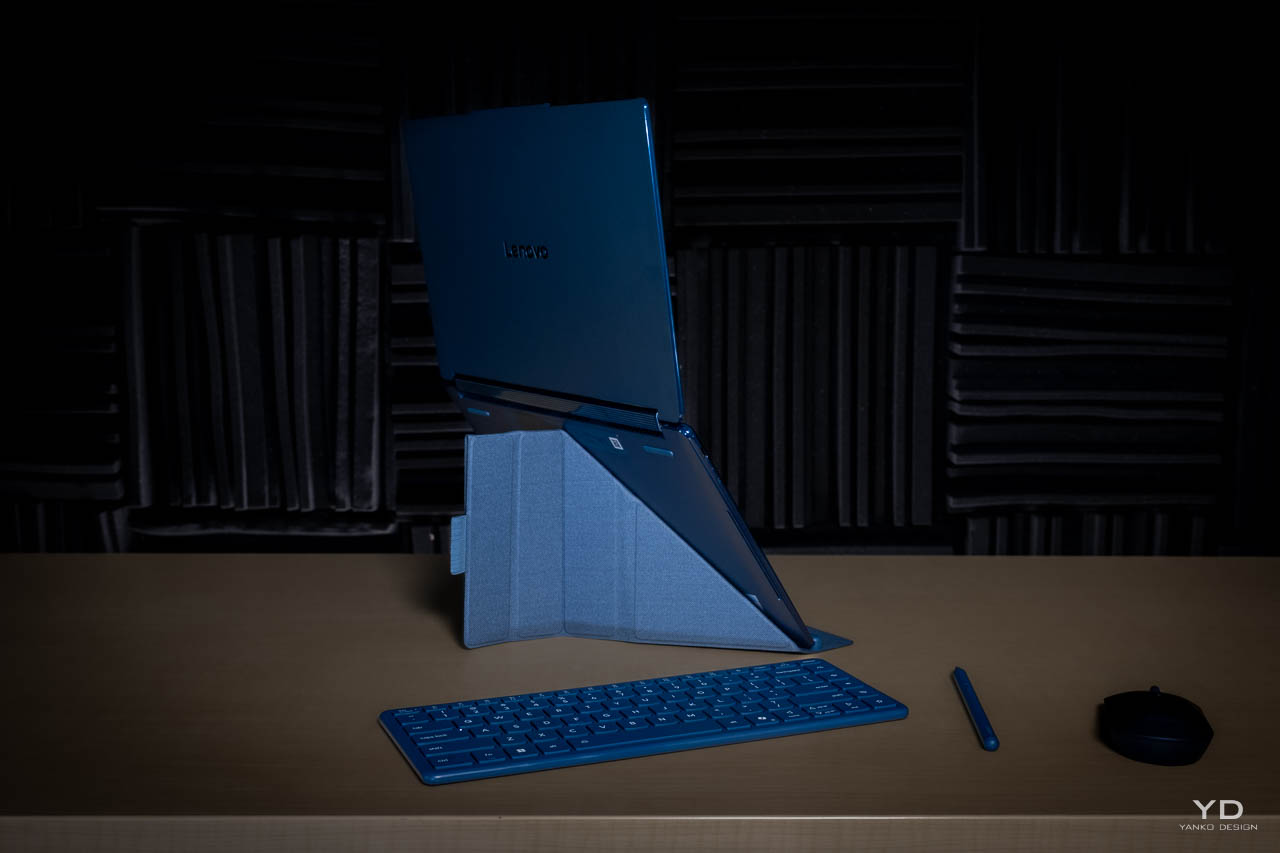

The new processor delivers approximately 5% better single-core and 15% better multi-core performance in benchmark testing, though real-world performance gains feel more modest in typical productivity scenarios. The integrated Arc Graphics (4-cores) replaces the previous Iris Xe Graphics, offering improved graphics capabilities for creative work and casual gaming.
Memory options remain at 16GB or 32GB of LPDDR5X, though the new generation runs at a faster 7467MHz compared to the previous 6400MHz. Storage options include 512GB or 1TB M.2 PCIe 4.0 NVMe SSDs, providing ample space for applications and content.
Battery life remains a challenge with the dual-screen design, with the 80Wh battery delivering approximately 7 hours of mixed use. This proves adequate for most work sessions but falls short of all-day computing. The 65W USB-C charging system supports fast charging, providing a quick power boost when needed.
Practical Considerations: Living with Dual Screens
After extended use, certain realities of the dual-screen form factor become apparent. The system excels at multitasking scenarios where information comparison or reference is required. Coding, content creation, and research tasks benefit tremendously from the expanded screen real estate.
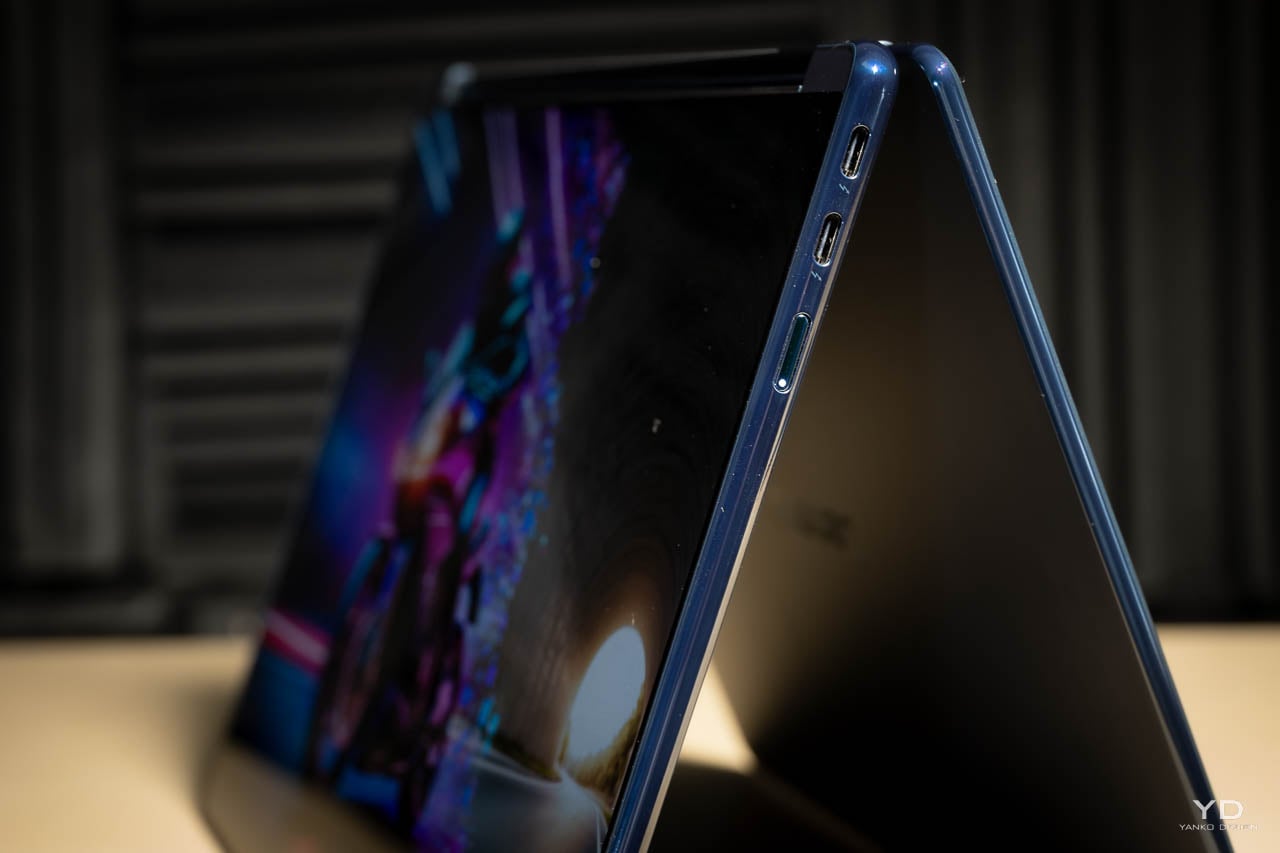

However, traditional laptop usage scenarios reveal some compromises. When using the device with the keyboard attached to the bottom screen, apps still occasionally open underneath the keyboard, requiring manual repositioning. The virtual touchpad, while functional, cannot match the precision and comfort of a dedicated physical surface.
Storage for the stand and keyboard also requires consideration when traveling. While the folio design cleverly integrates keyboard storage, the complete package occupies more bag space than a traditional laptop.
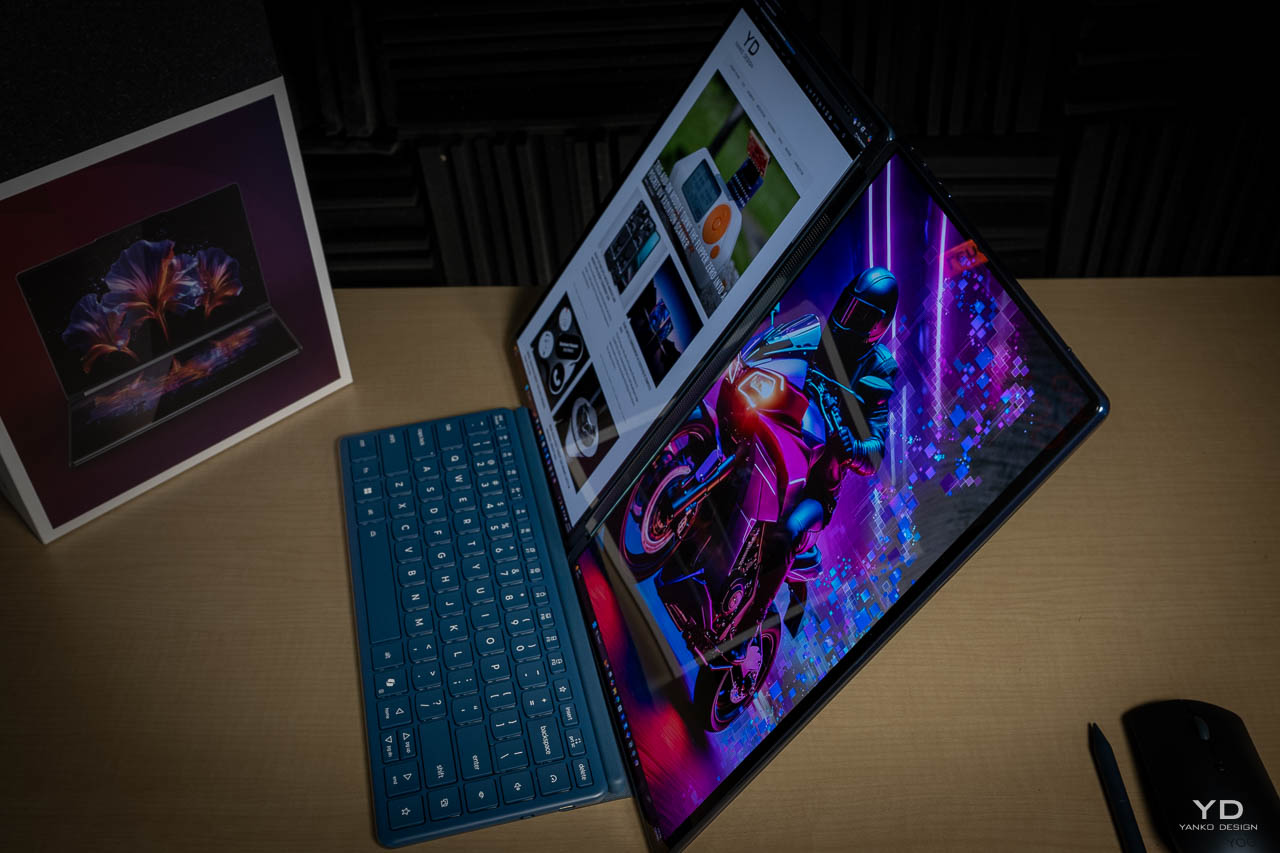

These trade-offs feel acceptable given the versatility gained, but potential buyers should consider their primary use cases carefully. The Yoga Book 9i isn’t trying to be all things to all users. It excels for those who value screen real estate and flexibility over absolute portability.
Conclusion: Refined Innovation with Purpose
The 2025 Lenovo Yoga Book 9i represents meaningful evolution rather than revolution. It maintains what worked in the original concept while addressing pain points through thoughtful refinement. The improved processor, enhanced software integration, and subtle design changes collectively deliver a more cohesive experience.
At $1,980, the Yoga Book 9i positions itself as a premium offering for early adopters and professionals who can leverage its unique capabilities. While this price point exceeds standard ultraportables, it feels justified given the dual OLED displays and included accessories.
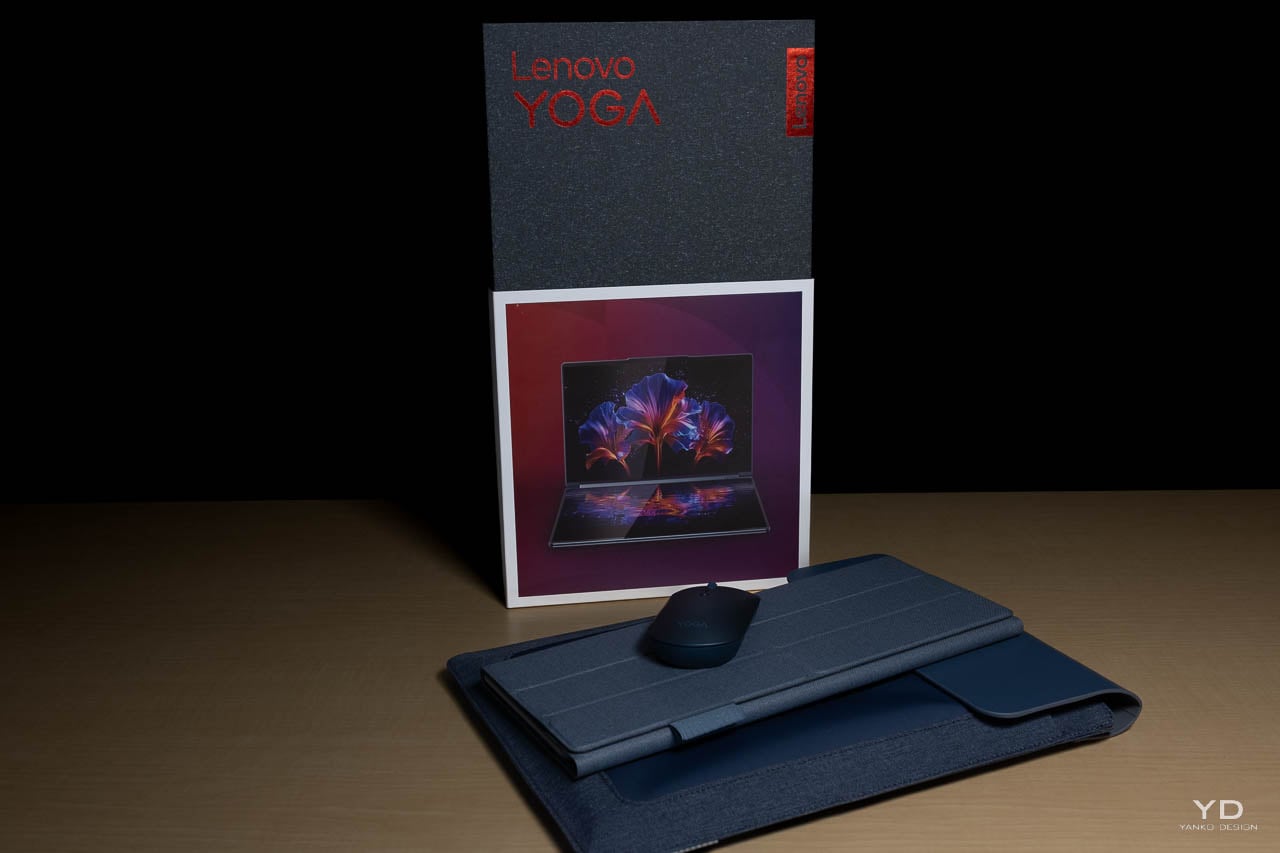

For designers, content creators, and multitasking professionals, the Yoga Book 9i offers a compelling alternative to traditional laptops or even desktop-plus-tablet combinations. It successfully bridges the gap between experimental concept and practical tool, demonstrating that innovative form factors can deliver genuine productivity benefits when executed with care.
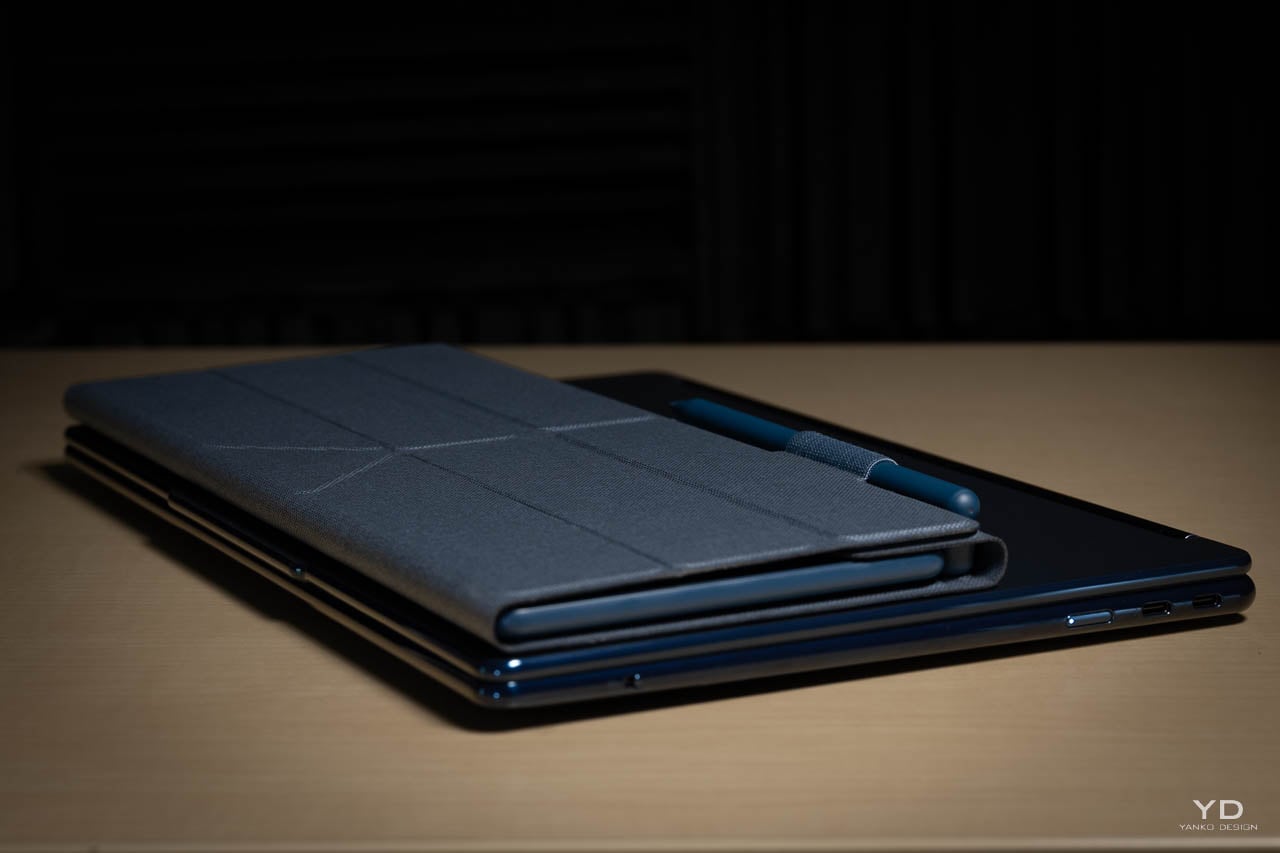

The Yoga Book 9i isn’t just a technological showcase. It’s a glimpse into a future where our computing devices adapt to our needs rather than forcing us to adapt to their limitations. That vision alone makes it one of the most interesting devices of the year.
Vincent Nguyen
If you liked the article, do not forget to share it with your friends. Follow us on Google News too, click on the star and choose us from your favorites.
If you want to read more like this article, you can visit our Technology category.
